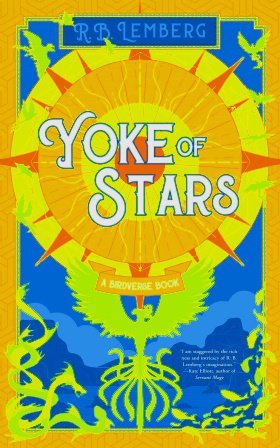“If I wasn’t too curious for my own good, I would still be with my people. I would be a part of the Shoal.”
“Do you regret leaving?” he asked.
“You ask me without wanting to answer any of my questions. I will trade answers with you, if you wish.”
He threw himself upon the bed once more, and turned his face away.
I crossed my arms and leaned against the wall.
Studying nameway bodies came in handy for me then. He would speak first, I knew. He was more powerful than me by far, but impatient; I had him at a disadvantage.
Not too long after he said, without turning to face me, “I answered your question about your pool.”
Ah. It wasn’t much of an answer. He had spoken up first, as I expected, but only to keep score. He was also right. I had asked him about my pool, and he all but confirmed that he cleared and filled it.
So I answered his earlier question. “No, I do not regret leaving. When I was living in the isles, I wanted to know the purpose of the Stone storyline. Well, I found it. We were warriors once. We encircled our people with protection, and we ventured forth in curiosity toward people and places not our own. We did many things, sometimes contradictory—we journeyed and remained, fought in wars and guarded peace, disrupted and betrayed and led our people to safety. In every story I found where the siltway people took part, there were Stones. I do not regret discovering this. In the isles, we Stones have no purpose.”
“Except to rebel,” he said.
“Rebellion is not a purpose. Perhaps I do not understand your words.”
He sat up on his bed to look at me. At close quarters he looked troubled, with sunken eyes and disheveled hair unraveling from his braid. I did not have a good look of him when he came in at night, and during training I did not spar with him. But now that I attended, he did not look well.
The Raker chewed his lips. “What is rebellion then, if not a purpose?”
“It is . . . I am trying to translate. It is a pushing-away. From one thing, which you are expected to do and to be, you set toward something else.” I made a push-away motion. “Studying your language, I understood that a person moves upon ground. But there’s more than that. When you push away, you acquire speed, and this speed can carry you past your target. Rebellions move you, not just upon ground, but against and alongside other people. One does not know where one might end up, one is carried, one seeks to have choice and might again lose it.”
“You would enjoy speaking to my sister,” the Raker said.
Ulín blinks. “Do you enjoy speaking to me?”
I reply, “Maybe.”
“I’m sorry.”
“No, don’t apologize. It is my choice to continue to speak to you.”
I contemplate her. Her anger, her discomfort, her confusion. Her curiosity, which is so much like mine. The warmth of companionship we shared earlier. The guardedness of now.
I can stop right here, or continue.
I choose to continue.
I tell Ulín, “I do not love languages the way you do. Studying your language is not a curiosity for me. It is a rebellion. In the beginning, I was all too willing to instigate it, but now I am carried. A story moves back and forth in translation, and it is remade every time. Each of us is a story translated to a language vastly different from its first. You can try to translate yourself back, but it won’t be the same story.”
After a while, the Raker continued his tale. “I went down to the Orphan wanting to die. The Headmaster thought I was finished.”
I waited.
“Nothing can undo my crime. It has no repair. No hope. A person loved me once, back in Che Mazri. They were—they are a ruler of that city. It does not matter.”
I waited some more, until he spoke again.
“Ladder said that my lover coddled me. But that’s not what happened. It was worse. My lover wanted to cut the bad pieces out of my past, to erase the bits they did not like. My lover said I was too young back then. Too hurt. How could I control myself? Well, I could. And I should have. And I didn’t.”
I said nothing. If it was a battle, I would be winning.
“I have an excess of power. It is not an excuse. My lover gifted me a net of diamonds to wear around my body. They made it with their magic, so I could constrain my power as needed. At first I thought it a great gift. Then I thought it a yoke.”
I did not know the word then. He told me, “A yoke is a rigid harness of wood that binds animals together. They bend their necks willingly to it, but then they are bound.”
“What happened to the diamond net?” I asked the Raker, and he turned his head away.
“I threw it into the Orphan.”
After a silence, he spoke again. “When I descended to meet the Orphan, I saw myself mirrored. I saw pain and shame unending. The agony of the Orphan Star’s birth, which absorbed the despair and the deaths of all its people. The star could have saved them all in the end, but it didn’t. Instead, it devoured them. The star judged itself so harshly. Even delivered on Bird’s tail, the Orphan Star had little hope. Now it has nothing left. Did you know that Ladder—its starkeeper, its lover, its bonded, its only friend—at the dawn of time desired to catch a different star?”

























